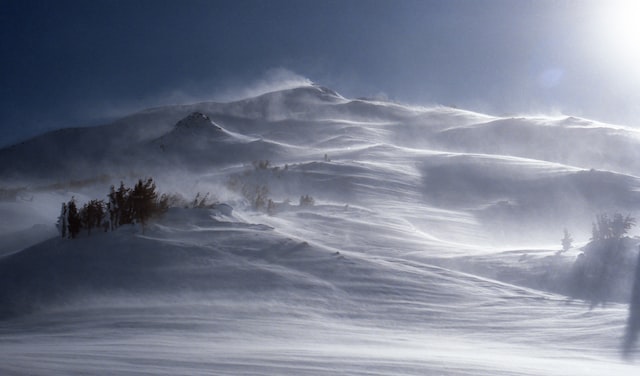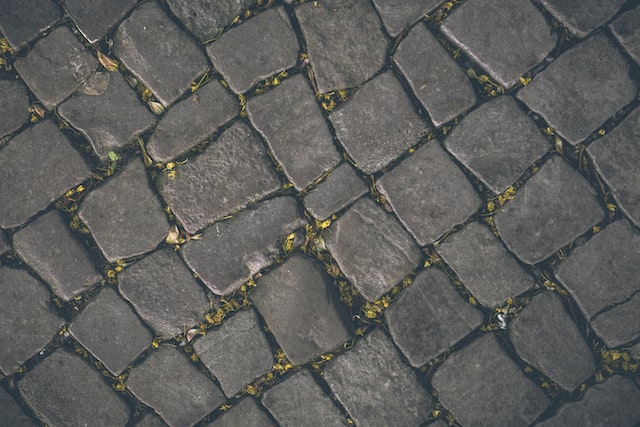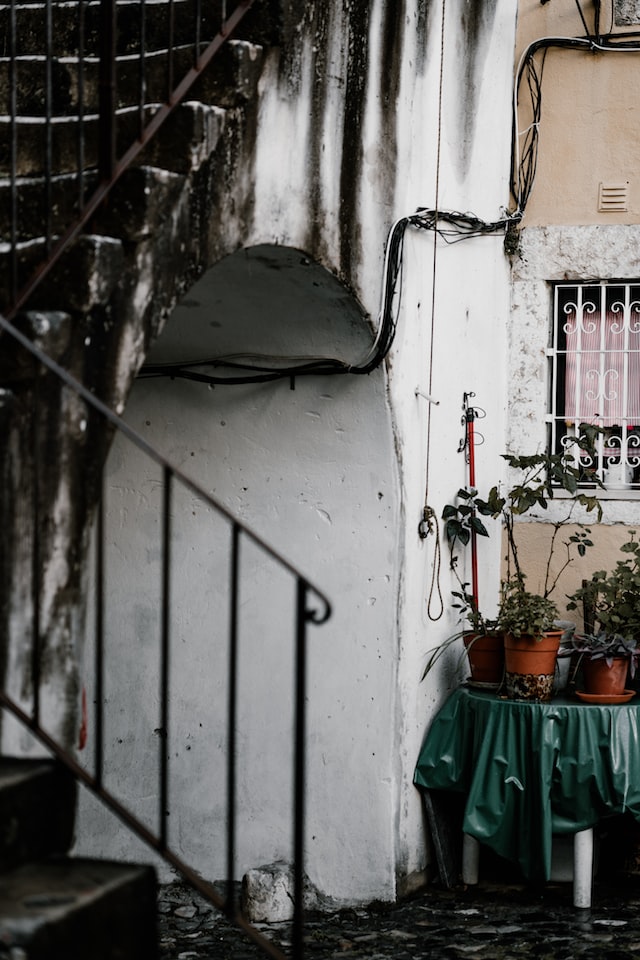Vegas closed down the year I turned forty, the Strip going dark just as I was finishing my last shift at a misnomered bar called Smile Time on the east side of town that slumped crookedly between a tanning salon called Ray’s Rays and an ancient gas station called nothing at all.
On my last day we had a meeting about not making enough to cover overhead and how to fix that – Dark Tuesdays was Jim’s idea, as the dumbest things we did usually were.
“We’ll take a dollar off Guinness pints,” he said, gazing into the middle distance above our heads as if we were standing in front of the Rockies or some tall assassin. “And do two-dollar Black Russians ’til close. The girls will come flocking in! It’ll work, I’m sure of it.” He’d just told us were about a month away from going bankrupt.
“Jim, there’s no way in hell that would work.” This from Arlene, the only bartender who had been around Before Jim, and she spoke of that paradise often when we took smoke breaks together “Before Jim,” she’d say, “you’d take home sixty, seventy bucks on a weeknight.” or “Before Jim, this was a classy place. Clean.” Sometimes, “Before Jim” became “Before Mina died,” but it amounted to the same thing. Before everything fell apart on us. Before the bar fell into hands of a simpering, sniveling fool.
“Aw, c’mon Arlene!” Jim simpered and sniveled. Arlene had been his mother’s best friend in life, and, while dying, Mina had extracted promises from her and Jim both that he would never fire her and she would never quit. Those promises made Arlene the voice of our hearts, the only one who could exclaim insulting truths to the idiot god who’d inherited us, this self-loving teetotaling dictator who came to work every day drunk on his own obscure genius. Arlene could be honest – the rest of us could only keep silent and fidget.
“Every show in this town is dark on Tuesdays,” Jim said, as if that was the point. “It’s a play on words.” We fidgeted.
“I know it’s a play on words, numbnuts,” Arlene said. “I’m saying showgirls don’t drink Guinness and Black Russians. We’re just going to get the same old men we always do.”
“Maybe a chocolate martini?”
“And they don’t drink chocolate martinis, either.” Arlene over-enunciated each word carefully, as if speaking a language in which she was not yet fluent. She would have walked out on a man this dumb years ago – she wore her divorces like medals. “Steve fucked my sister, so I fucked up his car,” which seemed only fair to me, a fuck for a fuck. “Joel put his hands on me once,” she told me on break, blowing blue smoke toward the street light. “Once.”
Like Before Jim stories, Shit Husband stories came as easy to Arlene as breathing, and, as the days before the shutdown grew longer and longer but no more eventful for that, she fed them to me like sour candy. She could see I was hungry to hear them, I think. My own divorce had been insultingly dull, free of children and drama. We owned nothing substantial in common – he let me keep all the books and the records. He just didn’t love me anymore. He woke up one morning and looked over at me and said, “I just don’t love you anymore,” and that was it. Why stay and make us both live in misery?
“Now, I know this apartment is small, but don’t you think ‘misery’ is a stretch?” I’d joked, because if we could laugh, it wasn’t real. If we could laugh, he still loved me.
But he didn’t laugh.
“Maybe we could do Skinny Bitches,” I whispered sidelong to Arlene. Jim’s eyes were a flat and unlovely species of medium brown, and whenever he turned those dirty pennies my way, I felt every memory of every moment in my life when a pair of shineless eyes had seemed see me at all only when they could see me failing clump up in my throat like sour milk.
“We could do Skinny Bitches,” Arlene said to Jim. A Skinny Bitch is vodka and Diet Coke. “We could use up all that Popov you bought, and all those plastic champaign flutes.” He’d bought hundreds of those for the New Year’s Eve rush we never got. Arlene didn’t call him a moron out loud that time. “You know, make it festive! Make it a party!”
“Yeah, a going-away party,” I said to myself, or maybe I just thought it. In school the other kids called me Casper and the teachers called my parents: “Even when she’s here it’s like she’s not here.” I listened in on the extension in the kitchen, winding the curls of the cord around my finger until the tip turned purpley-black, and then regarded it in wonder. Magic! To be held so tight it changed you! My algebra teacher sighed in frustration. “Where is she?”
Jim blew out a long sigh and put his hands to his back and arched it, like a washerwoman taking a break from that hard work to stretch and let the pinched-up blood go roaring back through her body. I’d grown up seeing my mother stretch her body that way after hanging up laundry, after doing the dishes, after sweeping, and cooking, and stomping on soda cans in the garage so we could take them in and sell them for scrap. Cans went for about a quarter a pound, and getting a pound of aluminum cans crunched into saleable discs meant an hour’s worth of work for that twenty-five cents. That’s what makes hard work hard – understanding how little it’s worth while you do it. But Jim had never done a day of hard work in his life, so he just looked like a fat assless duck.
“Ok Arlene,” Jim said finally. “We’ll try it your way. For now.” He dropped that last line on us like an anvil so that he could still feel like he was in charge, even though you could taste his relief in the air like you can salt near the beach. He must have realized deep down he was stupid, and so Arlene’s idea was the perfect rock to slither under. If she was right, we’d be saved. And if she was wrong, it wouldn’t be his fault. His filmy eyes glittered as much as they could.
When would Jim understand just how little his work was worth? Probably never. The virus saved him from figuring it out this time because it made the bar’s failure an act of God. Now the bar is only one of thousands of the city’s now-lifeless bodies: closed up like a box with nothing inside, simply taking up space, empty even of ghosts.
“We’ll try it your way,” Jim said again like he was doing a favor for Arlene or anyone, like we would be at all fooled about who was to blame if this idea failed as the former ones had, like saying “We’ll try it your way” is the same as saying “Sounds great!” or “Thank you!” He tried to sound grudging but he only seemed bloated, and it didn’t of course matter anyway no how, because along came the virus to kill us for good.
I’ve not seen him since, but I still see Arlene. She comes to my complex and smokes outside at the foot of the stairs while I smoke at the top, and she feeds me her stories, stories where she is the hero and she makes herself known. I’ll see her tonight and wrap myself in her strength like I would in a bulletproof vest before combat. Combat. Ha. As if life isn’t combat already.
But first.
First I’ll drive into the desert outside of town and find some stretch of unoccupied hardpan and park. I’ll take off my shirt and lay down on the hood and say to the stars, “I am alive in this body.” I am. Whoever has loved me or lost me, whoever has left me behind. I’ll look at my hands in the starlight. I’ll lay one down hot on my chest, skin against skin, and remember. I am alive in this body.
Pushcart prize nominee Martha Stallman’s work has appeared in The James Joyce Quarterly, Joyce Studies Annual, The Offing, Electric Literature, and Playboy. She lives and writes in Austin, Texas.












